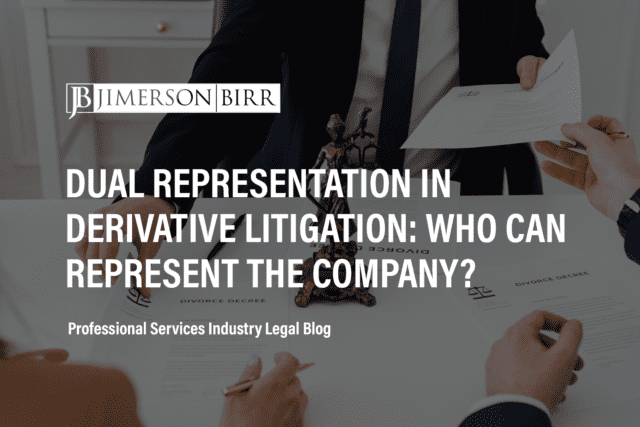What is an action for indemnification?
An action for indemnification is a legal proceeding in which one party seeks to recover compensation or reimbursement from another party for losses or damages the first party has suffered. In such an action, the party seeking indemnification typically alleges that the other party is legally responsible for the losses or damages and is therefore obligated to provide compensation. The legal basis for an action for indemnification may arise from many different sources. These include a contractual obligation created by the parties, such as through an insurance negotiation, a legal duty, or a common law principle.
For example, a business owner who hires a contractor to do construction work on their property may agree to a contract with an indemnification clause requiring the contractor to cover any damages or liability resulting from their work. However, suppose the contractor’s work injures a third party, and the injured party files a lawsuit against the business owner. In that case, the owner can bring an indemnification action against the contractor to cover the filing costs and any damages awarded to the injured party.
The scope of indemnification, the circumstances under which it applies, and any limitations or exclusions to the obligation will depend on the specific legal or contractual provisions. Florida law, for example, places certain restrictions on actions for indemnification depending on the circumstances under which they arise.
Need help with an indemnification claim? Schedule your consultation today with a top business litigation attorney.
What legal issues typically arise related to indemnification?
The following disputes are among the most common to indemnification actions:
- Scope: Parties may have different expectations about the extent of indemnification obligations arising from contracts. This difference can lead to disputes over the scope of indemnification.
- Timing: Parties may disagree about when the indemnification obligation arises. One party may argue that the indemnification obligation arises when a claim is made. In contrast, the other party may counter that indemnification only applies after reaching a judgment or settlement. This disagreement can lead to delays in payment or even litigation.
- Limits: Florida law may limit indemnification, particularly in cases of intentional misconduct or willful neglect. For example, damages arising from intentional misconduct or gross negligence might prohibit indemnification. In addition, a judgment or settlement deemed unlawful or against public policy might also prevent indemnification.
- Insurance: Indemnification and insurance are closely related concepts. When an indemnification obligation arises, the party providing indemnification may rely on their insurer to fulfill it. However, insurance policies may contain limitations or exclusions that affect the scope or timing of indemnification, which can lead to further disputes over the availability and adequacy of insurance coverage.
What are relevant laws related to indemnification in Florida?
In Florida, the scope of indemnification actions is controlled by various statutes, depending on the context of the indemnification obligation. Here are a few examples of Florida Statutes that may be relevant to everyday indemnification actions:
- Section 95.11: This statute provides the statute of limitations and statute of repose for claims arising from the design, planning, or construction of an improvement to real property, including indemnification actions.
- Section 725.06: This statute restricts the scope of indemnification clauses in construction contracts between an owner and various parties, such as architects, contractors, and subcontractors. Such clauses shall be unenforceable unless they contain a reasonable monetary limitation. Further, the indemnification shall not include claims resulting from gross negligence, willful misconduct, or statutory violations of the indemnitee.
- Section 768.28: This statute provides sovereign immunity for certain governmental entities in Florida but also allows for the waiver of sovereign immunity and the indemnification of public employees for specific actions taken during their official duties.
- Section 725.08: This statute permits public agencies in Florida to require design professionals to indemnify them for damages caused by negligence or recklessness. However, professional services contracts cannot require such indemnification unless expressly provided for, which limits the scope of indemnity.
What is required to prove an indemnity action in Florida?
To prove an indemnification claim in Florida, the party seeking indemnity must show the following:
- Responsibility for damages: Proof that the other party agreed to be responsible for any damages or losses resulting from the first party’s actions; and
- Monetary limit: The agreement must have a monetary limit reasonably related to the contract, and the damages cannot result from gross negligence, willful misconduct, or other specified exceptions.
Additionally, agreements in certain contexts may have specific indemnification requirements but generally cannot require one party to indemnify the other for all liabilities.
When a set of facts is appropriate to meet the requirements of indemnification, there are many paths a claimant may take. We are value-based attorneys at Jimerson Birr, which means we look at each action with our clients from the point of view of costs and benefits while reducing liability. Then, based on our client’s objectives, we chart a path forward to seek appropriate remedies.
To see what actions may be available for your unique situation, please contact our office to set up your initial consultation.
What are common defenses to indemnification in Florida?
Common defenses to indemnification in Florida include the following:
- Sole responsibility: This involves showing that the party seeking indemnification was solely responsible for the damages or injuries.
- Public policy prohibition: This requires proving that the indemnification provision is against public policy or void under Florida law.
- Ambiguity: The language of the indemnification provision does not clearly and unambiguously cover the situation at hand.
To see what defenses may be available for your unique situation, please contact our office to set up your initial consultation.
Have more questions about an indemnification-related situation?
Crucially, this overview of indemnification does not begin to cover all the laws implicated by this issue or the factors that may compel the application of such laws. Every case is unique, and the laws can produce different outcomes depending on the individual circumstances.
Jimerson Birr attorneys guide our clients to help make informed decisions while ensuring their rights are respected and protected. Our lawyers are highly trained and experienced in the nuances of the law, so they can accurately interpret statutes and case law and holistically prepare individuals or companies for their legal endeavors. Through this intense personal investment and advocacy, our lawyers will help resolve the issue’s complicated legal problems efficiently and effectively.
Having a Jimerson Birr attorney on your side means securing a team of seasoned, multi-dimensional, cross-functional legal professionals. Whether it is a transaction, an operational issue, a regulatory challenge, or a contested legal predicament that may require court intervention, we remain a tireless advocate every step of the way. Being a value-added law firm means putting the client at the forefront of everything we do. We use our experience to help our clients navigate even the most complex problems and come out the other side triumphant.
If you want to understand your case, the merits of your claim or defense, potential monetary awards, or the amount of exposure you face, you should speak with a qualified Jimerson Birr lawyer. Our experienced team of attorneys is here to help. Call Jimerson Birr at (904) 389-0050 or use the contact form to set up a consultation.


We live by our 7 Superior Service Commitments
- Conferring Client-Defined Value
- Efficient and Cost-Effective
- Accessibility
- Delivering an Experience While Delivering Results
- Meaningful and Enduring Partnership
- Exceptional Communication Based Upon Listening
- Accountability to Goals











